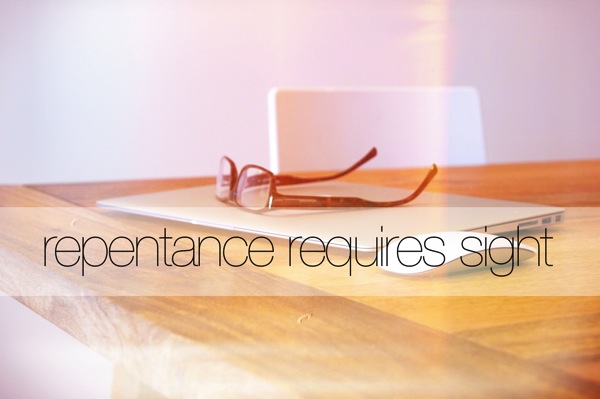 I have bad eyes. I have since high school, maybe longer. I’m also stubborn, so although I have trouble seeing things at a distance, I still don’t wear glasses or contacts. Having bad eyesight creates some problems. In school, it created a problem seeing the board. That was actually how I discovered I had bad eyes; my classmates could clearly make out the dates in history class while I struggled to figure out what was being written down. I can see well enough to drive safely, but if I have to pick out a street name in an area I have never been, it is not an easy task.
I have bad eyes. I have since high school, maybe longer. I’m also stubborn, so although I have trouble seeing things at a distance, I still don’t wear glasses or contacts. Having bad eyesight creates some problems. In school, it created a problem seeing the board. That was actually how I discovered I had bad eyes; my classmates could clearly make out the dates in history class while I struggled to figure out what was being written down. I can see well enough to drive safely, but if I have to pick out a street name in an area I have never been, it is not an easy task.
As humans, we all have a sight problem.
Sin is a problem that runs deep in our hearts, yet is also a problem that we ignore. As humans we sometime do not see this problem of sin clearly. Our vision gets a little blurry and we start to think that something else is the problem.
We forget it.
We ignore it.
We look the other way.
Imagine if this was something like heart disease. Imagine having heart disease and your life was at risk, yet you were completely unaware of it. If you were a walking heart attack yet you don’t realize that there is any problem, you would not be very successful in dealing with your disease.
Because if you don’t know there is a problem, you are not going to seek healing.
The Way of Repentance requires sight.
Paul writes in Corinthians, "Godly sorrow brings repentance that leads to salvation and leaves no regret, but worldly sorrow brings death.” Ignoring a heart problem is certainly dangerous. Ignoring sin is even worse.
Repentance requires seeing clearly.
“Godly grief has sight.” - Thomas Watson
Because of our sight problem sin often gets overlooked. And when we overlook sin, when our vision gets blurry in matters of our sinfulness, it is a matter of life and death.
The path of godly sorrow and repentance is a path of life, healing, salvation, and no regrets. Worldly sorrow on the other hand is a path towards death. When God gives us sight, two things become very clear. We see clearly the problem and we see clearly the promise.
In repentance we see things clearly. We clearly see what the law makes known. We are sinners. In repentance we also cling to the promise of the Gospel. We are assured that our sins are forgiven by the death and the resurrection of Jesus. We are called both saints (the promise) and sinners (the problem) at the same time. Although we have been marked and scarred by sin, we also have been marked by Christ.
Martin Luther actually believed that all of the Christian life should be repentance:
“When our Lord and Master Jesus Christ said, ‘Repent,’ he willed the entire life of believers to be one of repentance.”
As Christians all of our life centers around seeing clearly both the problem and the promise.
